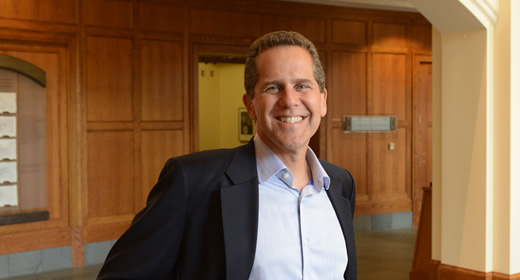
Dean Michael Barr is featured on a recent episode of The Indicator, a podcast from NPR's Planet Money. The episode, titled "Dungeons & Dragons & Balance Sheets," explored the origins, results, and future of annual "stress tests" for mid-sized to large banks.
The stress tests, led by the Federal Reserve, have been required by the 2010 Dodd-Frank Wall Street Reform and Consumer Protection Act, of which Barr was a key architect while serving as assistant treasury secretary. Each year, around 35 larger banks are presented with a hypothetical emergency scenario, such as mass credit card defaults or an economic meltdown in Europe. The banks work with regulators to play the scenarios out and determine the impact on balance sheets. The findings of the tests are made public.
Recent Trump Administration roll-backs to Dodd-Frank mean that going forward, mid-sized banks won't have to undergo the stress test, leaving just about a dozen of the largest banks still required to run through emergency scenarios with regulators. Further, the results of the tests will only be shared privately with each bank, rather than released to the public.
Barr tells The Indicator that those regulatory rollbacks are "a significant mistake." After all, Lehman Brothers, whose failure represented ground zero for the 2009 financial crisis, wasn't a large bank. It was, however, deeply connected with other financial institutions, which fueled the spiraling crisis. "We have intentionally forgotten the really significant causes and consequences of the last financial crisis," says Barr.
Listen to the 9 minute podcast episode here.